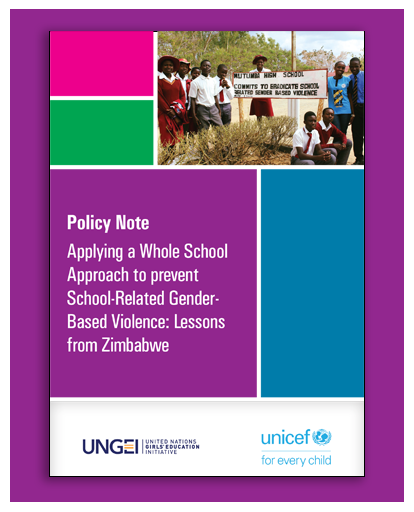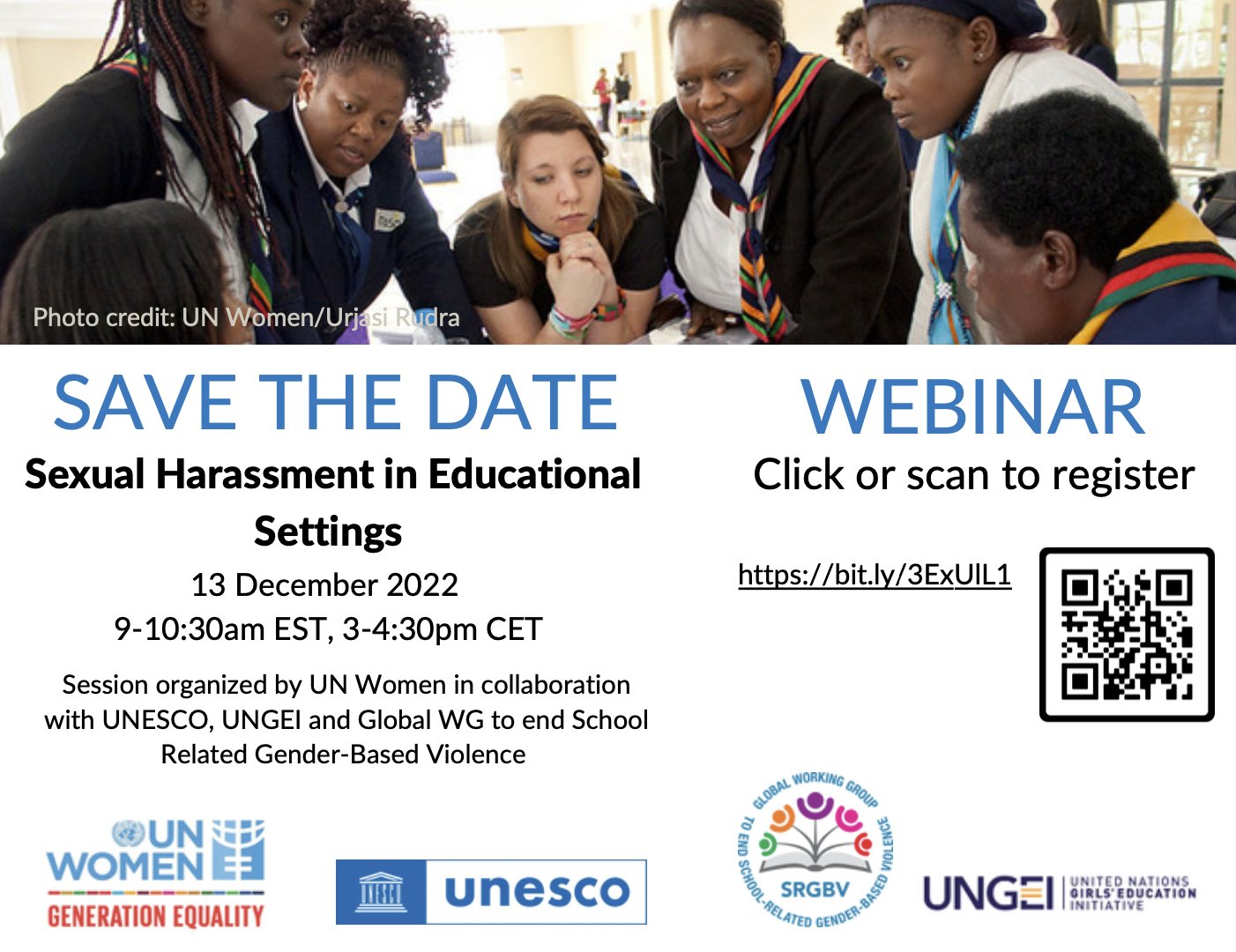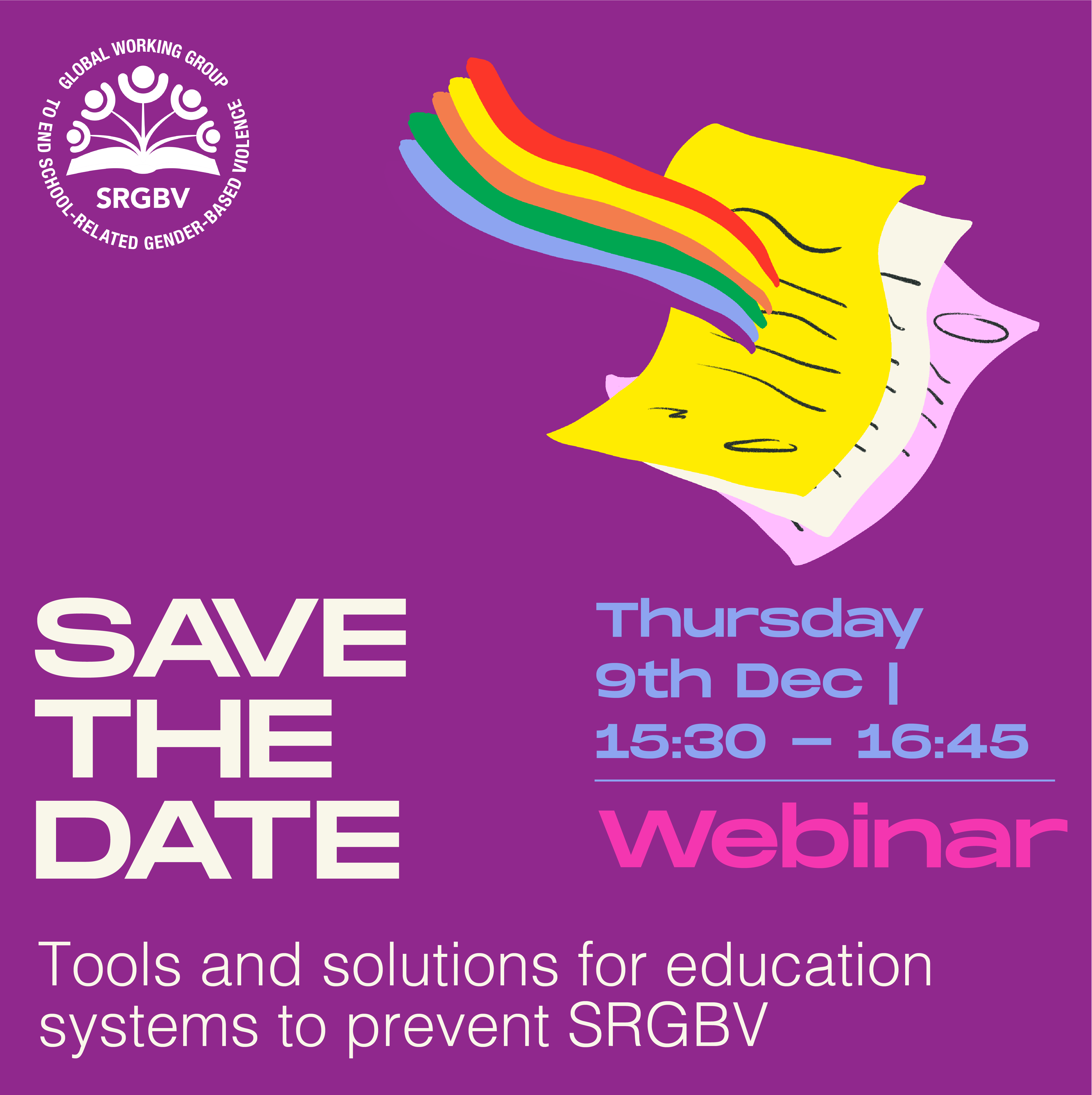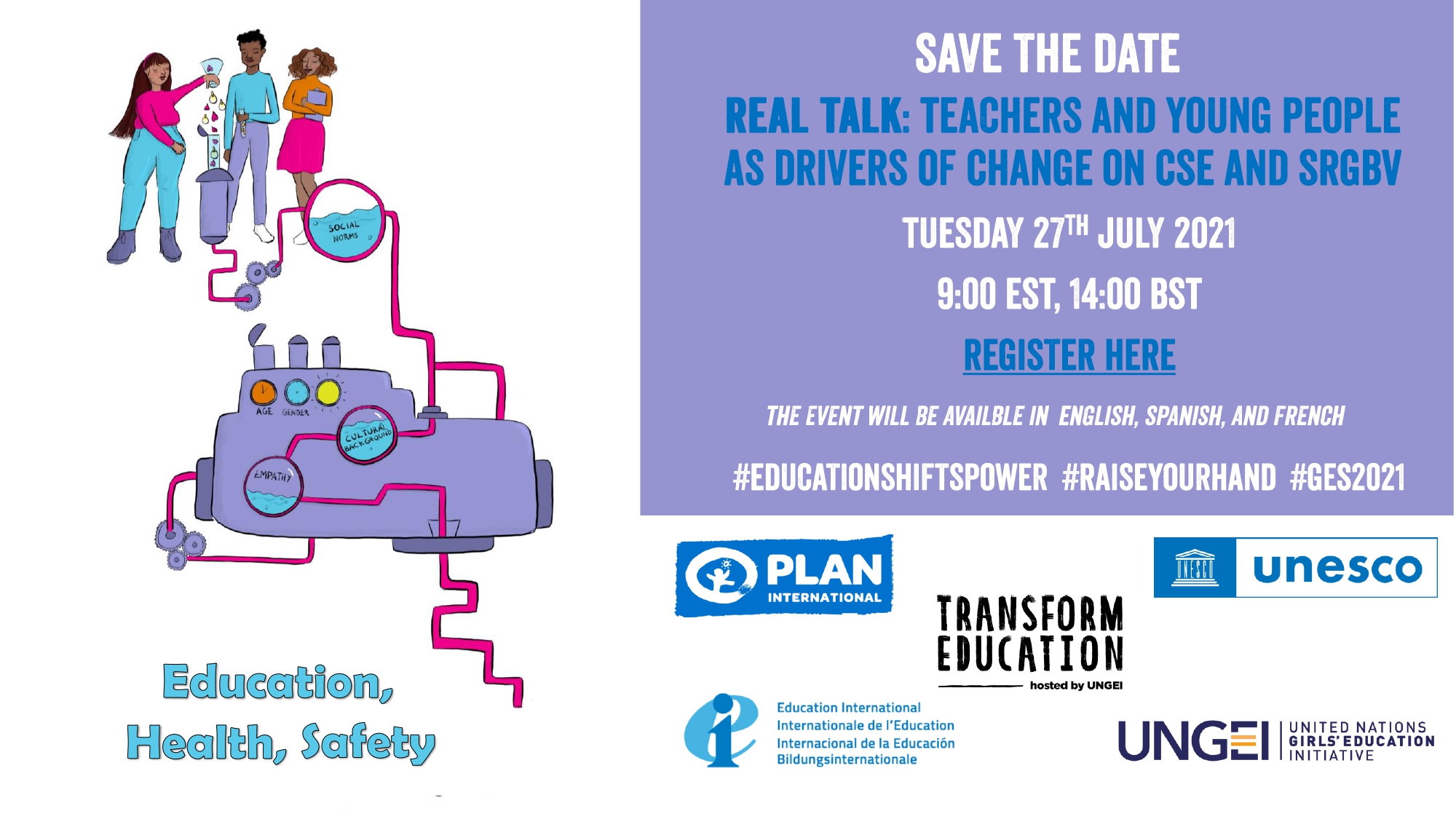(We are) committed to supporting gender-sensitive policies, planning and learning environments; mainstreaming gender issues in teacher training and curricula; and eliminating gender-based discrimination and violence in schools.
Parents send their children to school to learn, to become educated and with the hope that eventually they will have a better life than they did. Schools provide the necessary conducive environment for learning – freedom from violence, discrimination, and physical and emotional abuse, well trained teachers, textbooks and curricula free from biases - among other things. Education holds the promise to unlock the full potential of every child.
And yet, over half of the world’s children – 1 billion girls and boys – have experienced violence in the past year, with much of that violence taking place in schools.1 Corporal punishment and violent discipline in schools continue to be pervasive in many contexts. An estimated 852 million girls 15 and older have experienced some form of physical and/or sexual violence in their lifetime,2 including at the hands of peers or teachers at school. Data are not systematically collected on sexual harassment, violence and abuse perpetrated in and around school, nor on the impact of school violence on LGBTQI students and those with disability.
Whole school interventions can be an effective solution to prevent violence
A whole school approach recognizes that schools exist within a community and mirror the values, norms and ethos that its members hold. Applying a whole school approach means strengthening the interconnectedness between teachers, school heads, students, parents, community members and faith-based leaders, education officials and civil society organizations - towards a common goal of dismantling unequal and harmful norms and practices. Evidence reviews globally have found that effective approaches create dialogues across school communities on underlying gender norms and inequalities which contribute to violence. These interventions have multiple components, including changes to school policies and practice, commitment of school leaders, training and support for teachers, and participation of teachers and students.3
In 2018, UNGEI and the Global Working Group to end School-Related Gender-Based Violence led the development of A Whole School Approach to prevent School-Related Gender-Based Violence: Minimum Standards and Monitoring Framework. The guide laid out eight domains and a set of minimum standards (See figure 1 and 2) for practitioners and policy makers. These are meant to guide implementation, improve prevention and response actions within a school structure and through the education system.
Figure 1: Domains of a Whole School Approach
Figure 2: Minimum Standards
UNGEI partnered with FAWE Zimbabwe to pilot the minimum standards in 10 schools in two districts (one rural and one peri-urban) of Zimbabwe between 2018-2020. This policy note captures the salient features of the programme and findings from the applied research study. We learned a great deal about integrating school violence prevention and response within a low-resourced education system. The monitoring, evaluation and learning strategy applied a gender transformative approach in capturing shifts in attitudes and behaviours among the school community, beyond the participants of the pilot. The programme showed promising results in: (1) creating more gender equal leadership in student councils; (2) improving teachers and students’ awareness of different forms and acts of violence; (3) improving the participation of parents and community members in school led prevention and responsive activities; (4) teachers demonstrated greater gender awareness and commitment to creating a learner- centred environment.
Here are a few insights that contributed to the successful implementation of the pilot programme:
Harnessing local expertise on gender equality
Workshops led by Zimbabwean gender activists and young leaders enabled teachers, school heads and students to open up and reflect upon their own biases, experiences and views of gender, power and violence. This process allowed participants to understand and deconstruct concepts of gender and what unequal norms and power dynamics look like within their own lives. Tapping into local expertise created a safe space and motivated participants to own the process of shifting and changing harmful norms.
These days we no longer physically punish children, but what we do is we take the child or the perpetrator, we sit down in the committees . . . and then we talk with the child. We try and guide the child rather than punishing the child
Working with existing school level people and processes
Multi-layered interventions like the whole school minimum standards can seem burdensome for teachers, school administrators and school heads, if not carefully planned with them at the helm. The school Guidance and Counselling teachers were a valuable resource who integrated trainings, dissemination, and monitoring of the school suggestion boxes in their routine work. District education officials were intrinsic to the planning process and were able to support schools with reporting and monitoring of incidents.
Creating an enabling environment for the whole school community to work together
Engaging parents and community members in the functioning of a school, particularly to address violence, requires effort. At several schools, head teachers and other school staff strengthened partnerships with community organizations and parents, who, in turn, volunteered to support the use of codes of conduct and school infrastructure. The school development committees, comprised of teachers, administrative staff, parents and community members, collected funds to build fences, provide sanitary supplies and put awareness messages around the school premises.
Using and sharing data effectively leads to greater accountability
A quick win for FAWEZI through this pilot was their ability to share the findings from the baseline assessment with education officials at the ministry and feed into the 2020 Education Sector Analysis. This shed light on the issue of SRGBV in Zimbabwe, and the Ministry of Education became a signatory to the Safe to Learn Call to Action in 2021.
A call to action
The impact of Covid-19 lockdowns has been unprecedented in its harmful effects on the social and emotional well-being and education of children and young people of all genders. The pandemic upended the lives of the most marginalized with increased risks of domestic violence, child labour, early and forced marriages, sexual exploitation and violence and unintended pregnancies; rolling back progress on girls’ education and gender equality.
There is an unequivocal urgency to reopen schools and ensure a safe return, especially for the most marginalized girls and boys.4 A laser sharp focus is needed to ensure that education systems are built back better so that children and young people of all genders truly feel safe and nurtured; and are ready to learn.
This requires intentional actions to prepare schools and education systems to respond to and prevent school-related gender-based violence.
Let us commit to end gender violence in and through education.
Jenny Parkes, Professor of Education, Gender and International Development, Institute of Education, University College of London. Jenny’s research focuses on the relationship between violence, gender and inequalities in young people’s lives, and the role of education, with research studies in South Africa, Kenya, Ghana, Mozambique, Cote d’Ivoire, Togo, Ethiopia, Zambia and Uganda, as well as in the UK.
Sujata Bordoloi, Education Specialist and Coordinator of the Global Working Group to End School-Related Gender based Violence, at UN Girls Education Initiative. Sujata has 15+ of experience in education working on gender equality, violence prevention, and access to quality basic education in humanitarian disaster and conflict affected contexts.




 English
English العربية
العربية Български
Български Hrvatski
Hrvatski Čeština
Čeština Dansk
Dansk Nederlands
Nederlands Suomi
Suomi Français
Français Deutsch
Deutsch Ελληνικά
Ελληνικά हिन्दी
हिन्दी Italiano
Italiano Română
Română Русский
Русский Español
Español Maltese
Maltese Zulu
Zulu አማርኛ
አማርኛ